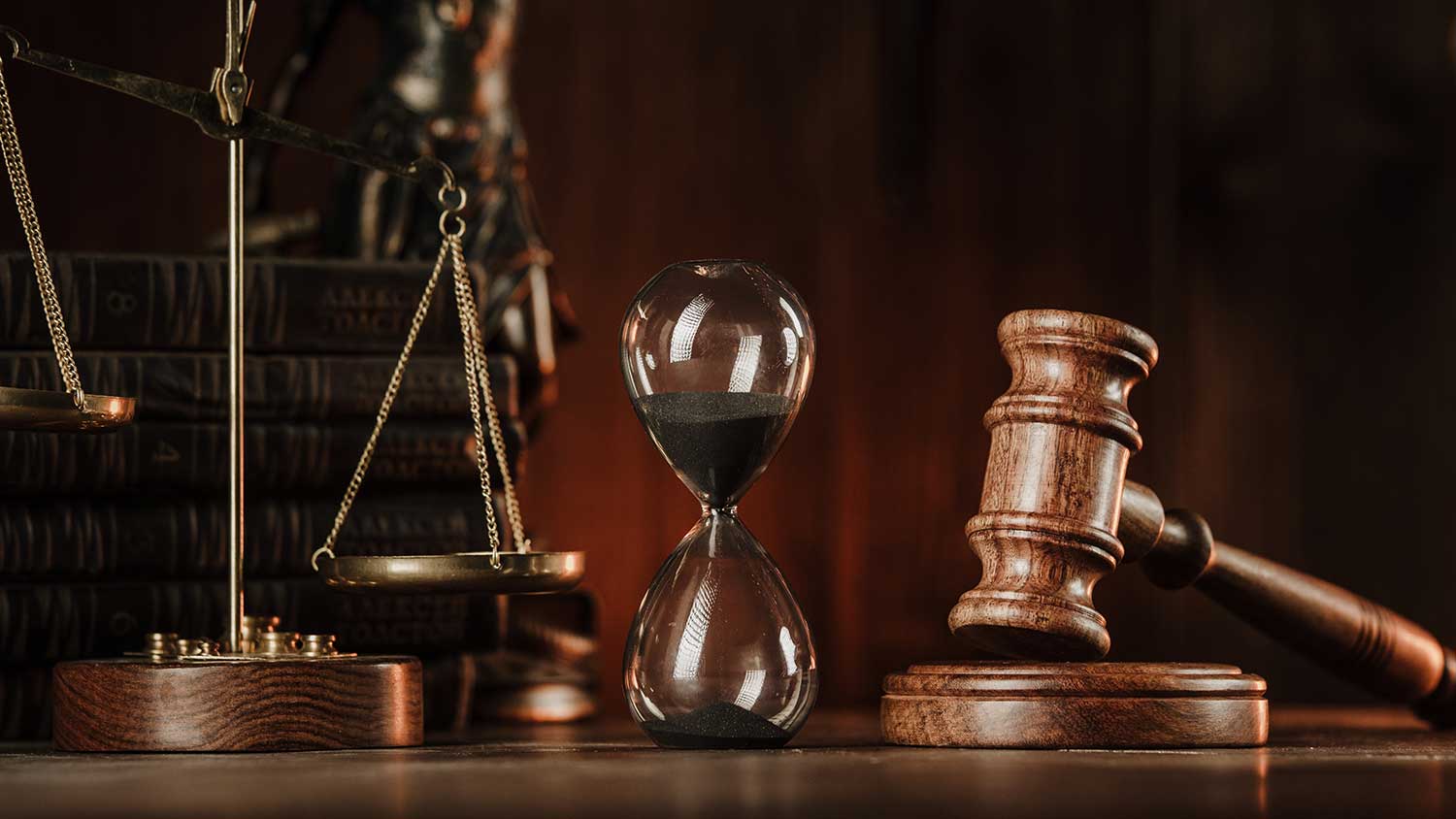Contents
- FEATURE ARTICLE: A Brief History of Lawyers’ Fees
- NEW AUTHORITY: Gender Pronoun Preferences
- ETHICS & MALPRACTICE RESEARCH TIP: New Articles Drawn from the Current Index of Legal Periodicals
- BLAST FROM THE PAST: Some Fees Charged by Abraham Lincoln in 1837
EDITED BY: Professor Mike Hoeflich
PUBLISHED BY: Joseph, Hollander & Craft LLC
View or download the PDF version
FEATURE ARTICLE
A Brief History of Lawyers’ Fees
What better time than the quiet days of summer to review one of the most basic and most important sets of rules regarding lawyer behavior—rules regulating fees? Model Rule 1.5 is the basis for the regulation of fees in most jurisdictions in the United States. In this series of articles, we will go over Rule 1.5 as it has been adopted in Kansas and Missouri and explore its many complexities. Before looking at the present rule, it will be useful—and, hopefully, entertaining—to take a brief glance at the history of the ways in which American lawyers have charged clients for their work during the past several centuries.
During antiquity and the Middle Ages, lawyers were, in theory, not supposed to charge clients for the work they did for them.[1] In Rome, the reward for doing legal work was the gratitude one could expect from happy clients and the political support that was supposed to follow a successful career as an advocate. In the Middle Ages, lawyers were not supposed to charge for their services because their ability to practice as a professional was deemed to derive from professional knowledge—knowledge that was not “earned” through study and experience, but was instead a “gift of God” (“scientia donum dei est”). In fact, we know that medieval lawyers did receive fees for their services, although they were supposed to be paid only if they were successful in their representation of their clients. One major effect of these regulations of legal fees that extended into the modern period and into Anglo-American law was the prohibition against a lawyer suing a client to recover an unpaid legal fee.[2]
By the time the United States had become a nation, legal fees were a subject of some interest to state legislatures. Fundamentally, legislators were suspicious of legal fees and lawyers. Many believed legislative regulation of legal fees was necessary to prevent lawyers from charging excessive fees, which they worried would result in unequal access to courts based upon clients’ wealth and resources, and, ultimately, systemic unfairness in the justice system.
…[1] See, on the history of legal fees in the U.S., Broward, “Legal Fees Historically Considered,” 50 Am. L. Rev. 554 (1916); Kellen Funk, The Lawyers’ Code: The Transformation of American Legal Practice (PhD Princeton, 2018), esp. at 345ff.
[2] See, 3 Blackstone, Commentaries 28. Blackstone opposed permitting lawyers to sue clients to recover fees both on the basis that Roman advocates were prohibited from doing so and because lawyers were “gentlemen” and gentlemen did not sue their clients for fees.
NEW AUTHORITY
Gender Pronoun Preferences
Over the past several years, many businesses, social organizations, and educational institutions have led initiatives to encourage individuals to declare their preferred gender pronouns. We now often see this reflected in the signature to emails, where many people have added a set of preferred pronouns. In some cases, the preferred pronouns will be gender specific, e.g., “she/her/hers.” In other cases, they will be “gender neutral,” e.g., “they/them.”
Many legal organizations have adopted new policies regarding the pronouns an individual wants to be associated with. For instance, Jenner & Block, Davis Polk & Wardwell, and other large firms have adopted permissive policies on pronoun use and let employees and partners choose the pronouns they prefer.[3] Some Canadian courts have also endorsed a permissive pronoun policy:
“Providing a forum of justice that is impartial, fair, consistent, and assures equal access for everyone is part of the mission of the Provincial Court of British Columbia,” its notice read. “According people dignity and respect by using their correct titles and pronouns is one aspect of such a forum… Using incorrect gendered language for a party or lawyer in court can cause uncomfortable tension and distract them from the proceedings that all participants should be free to concentrate on.”[4]
But the United States has yet to see a great deal of law regarding lawyers’ and judges’ ethical obligations with respect to an individual’s pronoun choice.
However, in January 2021, the New York courts issued Judicial Ethics Opinion 21-09, which deals with one particular aspect of this issue.
. . .
[3] See, Bloomberg Law, “Jenner & Block Latest Firm to Roll Out Preferred Pronoun Policy.”
[4] S. Peters, “Respecting pronouns is a professional responsibility.”
ETHICS & MALPRACTICE RESEARCH TIP
New Articles Drawn from the Current Index of Legal Periodicals
1. Noelle Wyman & Sam Heavenrich, “Vaccine Hesitancy and Legal Ethics,” 35 Geo. J. Legal Ethics 1 (2022).
This is an absolutely fascinating and very thoughtful article on the ways in which legal ethics impact the current controversies over vaccine hesitancy and disinformation. The following is a quote from the article’s introduction:
“In Part I, we introduce the concept of vaccination as a moral obligation for lawyers. Though the Rules do not—and we believe should not—mandate lawyers to be vaccinated, certain lawyers should consider it a moral duty. In Part II, we examine the legal community’s role in the antivaccination (antivax) movement and explore the concept of disinformation as professional misconduct, looking to recent post-election litigation as an analogy. Importantly, we distinguish disinformation (the deliberate spread of false information) from misinformation (the spread of false information in general). Rules requiring truthfulness and candor do prohibit lawyers from knowingly spreading antivax disinformation in certain contexts. Yet in practice, disciplinary authorities are unlikely to actually sanction lawyers for such behavior.”
2. Gregory Bischoping, “Reconceiving Ethics for Judicial Law Clerks,” 12 St. Mary’s Journal on Legal Ethics & Malpractice 58 (2022).
This is an important and timely study of the ethical rules as they apply to law clerks and of the strengths and weaknesses of such rules. The following is a quote from the article’s abstract:
“Judicial law clerks hold a unique and critical position in our legal system. They play a central part in the functioning of the judiciary, oftentimes writing the first draft of their judge’s opinions and serving as their trusted researcher and sounding board. Moreover, they are privy to the many highly confidential processes and private information behind the important work of the judiciary. It stands to reason the comprehensive set of ethical duties that bind the world of lawyers and judges should also provide guidance for judicial law clerks. The most important among those ethics rules is a duty of confidentiality. Without such a rule, after one’s clerkship, nothing enforces the commonly known duty. It is difficult to study the extent to which chambers’ confidences are breached in the practice of law, but books like The Brethren reveal the ways clerks have shared confidential judicial details with the public. Even the well-intentioned clerks, who make up the overwhelming majority, are given little to no guidance on the types of information they may ethically disclose. And there are other areas where guidance would be beneficial, such as post-clerkship recruiting and the limits on partisanship behavior during the clerkship.”
BLAST FROM THE PAST
Some Fees Charged by Abraham Lincoln in 1837
- For “procuring pay for a lost horse” $10
- For “procuring a divorce” [trial] $15
- For “collecting a note” $350
- For “collecting a note” $20
- For trying a case of forcible detainer $6 [paid “by board”]
From the “fee books” of the firm of Stuart & Lincoln discussed in H. Pratt, The Personal Finances of Abraham Lincoln (Springfield, Ill., 1943), pp. 27-28.
About LEMR
The Legal Ethics & Malpractice Reporter (LEMR) is a monthly publication covering current developments in ethics and malpractice law. This popular, free publication, with close to 8,000 current subscribers, was envisioned by KU Law professor Mike Hoeflich, who serves as the publication’s editor in chief. In partnership with Professor Hoeflich, JHC’s legal ethics and malpractice group is pleased to publish this monthly online periodical to help attorneys better understand the evolving landscape of legal ethics, professional responsibility, and malpractice.
Get LEMR delivered to your inbox!
Make sure you don’t miss an issue of the Legal Ethics & Malpractice Reporter. Subscribe to our email list below to get a notification and digest of each edition as it is released.
About Joseph, Hollander & Craft LLC
Joseph, Hollander & Craft is a premier law firm representing criminal, civil and family law clients throughout Kansas and Missouri. When your business, your freedom, your property, or your career is at stake, you want the attorney standing beside you to be skilled, prepared, and relentless. From our offices in Kansas City, Lawrence, Overland Park, Topeka and Wichita, our team of 20+ attorneys has you covered. We defend against life-changing criminal prosecutions. We protect children and property in divorce cases. We pursue relief for victims of trucking collisions and those who have suffered traumatic brain injuries due to the negligence of others. We fight allegations of professional misconduct against doctors, nurses, judges, attorneys, accountants, real estate agents and others. And we represent healthcare professionals and hospitals in civil litigation.













